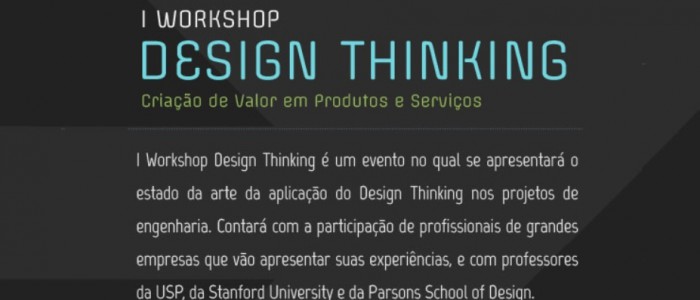IntoActions participates in first Design Thinking Conference at the University of São Paulo (USP)
The School of Engineering at the University of São Paulo (USP) organized the first academic conference on Design Thinking in Brazil (http://www.vanzolini.org.br/design-thinking/). Several speakers from academia as well as business shared their experiences in applying this innovation methodology.
Reinhold, a partner at IntoActions, opened the event by setting the larger context of the role of Stanford University in establishing the innovation ecosystem of Silicon Valley. Fabrício Dore, head of the Innovation Lab at Banco Itaú presented several examples of how design thinking has been implemented in companies.
Edgard, also a partner at IntoActions, spoke about the increasing complexity of problems and the need to apply a systemic approach in creating solutions. Carlos Teixeira, Associate Director at Parsons, The New School for Design in New York City, introduced the concept of Enterprising Design Strategies as a way to help senior managers lead collaborative projects using design as know-how to innovate.
Flávia Renata Silva from Embraer explained the collaboration between the the University of São Paulo and Stanford University. Embraer is the corporate partner in the ME310 Global Innovation Program. ME310 is a nine-month program where students from Stanford University and top global universities take on real-world challenges proposed by companies from all industries. Through the course of the program, students learn, apply, and experience the Stanford Design Innovation Process and many of its tool sets. Ulisses Araújo, a Professor in the School of Education at USP, ended this one-day conference by sharing examples of how design thinking is being introduced into education programs at the University of São Paulo.
This conference marked the beginning of a major initiative at USP to strengthen the use of the Design Thinking methodology across the entire university. It is clear that Design Thinking is no longer treated as a fad in Brazil, but that it is being taken seriously by companies and universities as an effective way for finding solutions to complex challenges.



